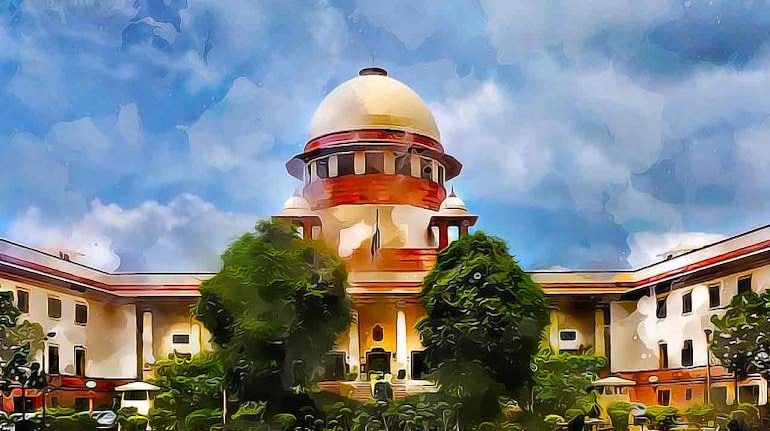



The Supreme Court, on April 30, came down hard on the Centre in regards to the COVID-19 crisis in the country. Among the issues addressed included free flow of information on the Internet and the pricing of COVID-19 vaccines.
India is in the middle of a harsh second wave of the coronavirus pandemic and saw a record high of 3.86 lakh new cases, 3,498 deaths in the past 24 hours. As many as 386,829 more people tested positive for COVID-19 in the past 24 hours, taking cumulative cases to 18,762,976 (1.87 crore), as per data from the Union Health Ministry on April 30.
Follow our LIVE Updates on the coronavirus pandemic here
This comes even as patients continue to flock hospitals which have close to no open beds and are crippled by low supplies of oxygen and other lifesaving drugs.
A Supreme Court bench headed by Justice DY Chandrachud and comprising Justice L Nageswara Rao and Justice S Ravindra Bhat took up suo moto cognizance of the issue on April 30.
Here are the key highlights of the Supreme Court’s observations:
>> On blocking of social media accounts and posts:
- The apex court observed that there should be no clampdown on citizens seeking help via the internet. It noted that posts and accounts cannot be blocked “on the presumption that they are raising false grievances”.
- Justice Chandrachud asked the Centre, states and all DGPs to not take action against those posting about shortage of oxygen, beds or doctors as “ as “there should be free flow of information, we should hear voices of citizens.” He added that such posts should not be considered as “spreading rumours”.
- If any action is taken against such posts by citizens in distress, we will treat it as contempt of the court, the bench added.
Also Read | List of states that will not begin vaccination drive for 18-44 age group from May 1
>> On sufficient beds for treatment:
- The bench observed that shortage of beds is such that even doctors and healthcare workers are finding it difficult to get treatment. It called the situation “grim” and added that the “healthcare infrastructure inherited over the past 70 years is not sufficient”.
- The SC has directed that “hostels, temples, churches and other places” be converted into COVID-19 Care Centres.
Also Read | Don't queue up for vaccines on May 1, jabs in short supply: Delhi CM Kejriwal
>> On the national immunisation programme:
- The court has recommended that the Centre adopt a national immunisation model that will benefit the poor and those unable to pay for vaccination. It questioned whether the marginalised, scheduled caste and scheduled tribe populations are being “left to the mercy of private hospitals.”
- “The government must consider a National Immunisation Programme for various vaccines and must think of providing free of cost vaccination to all citizens,” it added.
- Justice Chandrachud noted that with states told to procure 50 percent vaccines equity cannot be maintained. “Will one state get priority access over another in getting the vaccines? How will the vaccine manufacturers ensure equity? Why not follow the National Immunization Program policy...procurement is centralised but distribution be decentralised," he asked.
>> On shortage of healthcare workers:
- The apex court observed that the healthcare sector has come to a “breaking point” and noted that retired doctors or officials could be re-employed during this time of crisis.
>> On dual vaccine pricing:
- The apex court on April 30 questioned the different pricing of vaccines for the Centre and state governments. While it did not pass an order in regards to this, it asked the Centre to “examine the issue.”
- It also pointed out that the AstraZeneca, being produced in India, is available for cheaper in the United States compared to India – but “manufacturers here are charging you Rs 150 and states Rs 300 or 400”.
- “Why should we as a nation pay this, the price difference becomes Rs 30,000-40,000 crore?" Justice Bhat questioned.
Also Read: Exclusive | Amid tussle between hospitals and insurers, 171,000 claims await settlement
>> On Remdesivir shortage:
- The SC asked the Centre if it has considered invoking section 92 of the Patents Act” to boost the availability of COVID-19 drugs such as Remdesivir.
- Noting that Bangladesh has developed a generic drug for Remdesivir and is now exporting this to countries, the apex court questioned if the Centre has plans to “issue compulsory licenses so that drugs can be manufactured while royalties are sorted”.
- It also suggested that India can obtain a licence from Bangladesh to produce a generic version of the drug locally.
- "Compulsory licenses can be granted with a sunset clause which shows that such licenses will be over once the pandemic is over. The Doha Declaration of TRIPS shows that member states can take such steps to protect the right of public health," Justice Chandrachud said.
Discover the latest Business News, Sensex, and Nifty updates. Obtain Personal Finance insights, tax queries, and expert opinions on Moneycontrol or download the Moneycontrol App to stay updated!
Find the best of Al News in one place, specially curated for you every weekend.
Stay on top of the latest tech trends and biggest startup news.